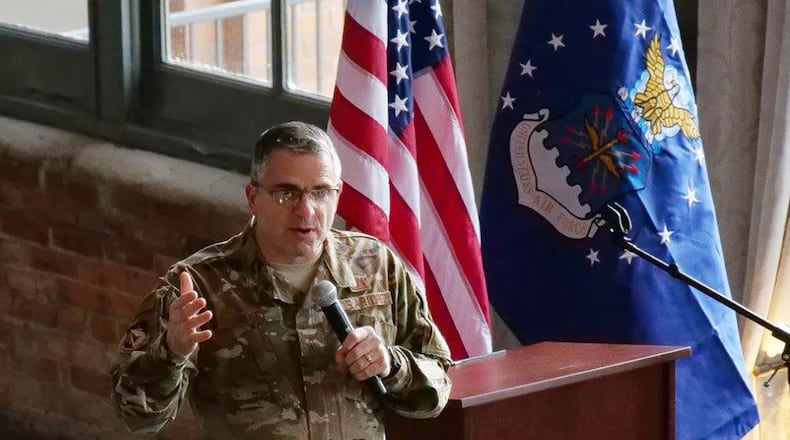Maj. Gen. William Cooley, a former commander of the Air Force Research Laboratory (AFRL), will be court-martialed on a sexual assault charge. It is the first time the Air Force has proceeded with the prosecution of a general officer.
AFMC Commander Gen. Arnold Bunch has selected court members from a list of 30 eligible general officers to serve on a jury in the court-martial, Kaufman said.
“The Uniform Code of Military Justice dictates they (members of a jury) must be a higher grade (three-star) or at an equivalent grade (two-star) with an earlier date of rank than the accused,” he said. “There will be at least eight court members.”
The Air Force will likely look for general officers who don’t know Cooley, said Don Christensen, president of Protect Our Defenders, an organization dedicated to ending sexual violence in the military, and a former officer who served as a trial counsel, defense counsel or military judge in his 23-year Air Force career.
Christensen said he would not be surprised if the service eventually “adds or subtracts” from that list of eligible officers. The Air Force will need to confirm that prospective jurors are available and otherwise eligible to serve.
He expects a colonel to prosecute the case and a high-ranking officer to preside.
“It’s going to be a challenge, but they should be able to do it,” Christensen said Thursday.
The venue or location for the court-martial is being evaluated, and a decision on that venue will be made later, Kaufman also said.
An Article 32 preliminary hearing in this case, similar to a grand jury hearing, was convened at Wright-Patterson in February this year. AFMC and AFRL are headquartered at Wright-Patterson.
Also to be determined: The Air Force trial judiciary will identify a senior military judge to preside, Kaufman said.
Asked if this trial will require more preparation than a typical court-martial, given the rank of the defendant, Kaufman said the Uniform Code of Military Justice dictates the general court martial process.
“The only unusual facet of this court will be the rank of panel members who will serve, which is driven by the rank of the accused,” he said.
“Other than that, it should be a normal court-martial,” Christensen said.
About the Author

